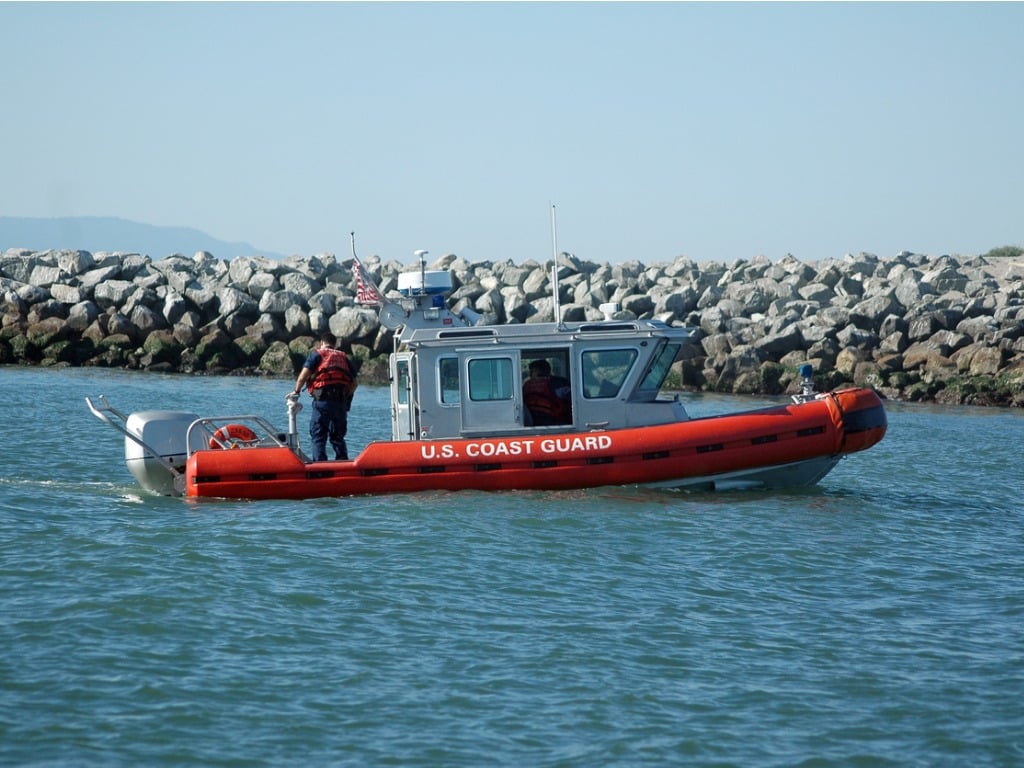The U.S. Coast Guard has implemented recommendations from past reports that urged the improvement of programs like the Anti-Harassment and Hate Incident (AHHI) program and whistleblower complaint processes, according to a November 16 Federal News Network article.
On October 28 of this year, Admiral Karl Schultz of the Coast Guard wrote a letter to the Chairman of the House Committee on Homeland Security Representative Bennie Thompson (D-MS) describing the changes that the Coast Guard has undertaken.
“Over the past ten months, an interdisciplinary working group, comprised of senior leadership and staff officers, developed and executed an action plan as outlined in my March 4, 2020 letter to you,” Admiral Schultz informs Rep. Thompson in the letter. “We have promulgated revised policies and improved the training and resources available to the Coast Guard’s workforce to greatly enhance the efficacy of our [AHHI] program and procedures.”
These changes are the Coast Guard’s response to three previous reports, the December 2018 DHS Inspector General Report of Investigation, the December 2019 “Righting the Ship” majority staff report, and a June 2020 report from the Department of Homeland Security Office of Inspector General. Each of the three reports detailed issues with the Coast Guard’s handling of whistleblowers and instances of whistleblower retaliation.
The Three Reports
The December 2018 report centered around a Department of Homeland Security Office of Inspector General (DHS OIG) investigation of a whistleblower complaint made by a Lieutenant Commander in the U.S. Coast Guard. The whistleblower alleged that she experienced “harassment and a hostile work environment by the Department Head based in part on race and gender” while stationed at the U.S. Coast Guard Academy in Connecticut, according to the report. She filed an Equal Opportunity (EO) complaint in 2015, and the report details her years-long involvement in the complaint and reporting process that concluded in 2018. “DHS OIG finds that Complainant had a reasonable belief that her allegations disclosed evidence of unlawful discrimination prohibited by the U.S. Coast Guard Civil Rights Manual,” the report read. “By reasonably complaining of unlawful discrimination to persons in the chain of command or the representatives of the office designated to receive such complaints, Complainant made protected communications under 10 U.S.C. § 1034(c)(2).13,” the report continues.
The report expands on some of the actions taken by the individuals involved in the whistleblower case, then provides recommendations for the agency to consider: “DHS OIG recommends that the Secretary require additional training for all U.S. Coast Guard supervisors and managers on the agency’s discrimination, harassment, and bullying policies.” One of the recommendations also addresses whistleblower retaliation: “Direct that the U.S. Coast Guard Civil Rights Manual…be modified to clarify that military members who believe they were subject to whistleblower retaliation should file a complaint with DHS OIG, not the U.S. Office of Special Counsel.”
The U.S. House of Representatives’ December 2019 “Righting the Ship” majority staff report cites the December 2018 report and whistleblower case and reiterates recommendations for the Coast Guard to implement. These recommendations are featured on page 39-41 of the report and urge leadership within the Coast Guard to ensure investigators do not have any conflict of interest when investigating allegations, investigators of bullying and harassment incidents are properly trained, etc.
Finally, the June 2020 report from the DHS OIG, entitled “The U.S. Coast Guard Academy Must Take Additional Steps to Better Address Allegations of Race-Based Harassment and Prevent Such Harassment on Campus,” also includes recommendations for the Coast Guard and is based upon “16 allegations of race-based harassment involving cadets between 2013 and 2018.” According to the report, the Coast Guard Academy was aware of these incidents “and had sufficient information to investigate and address through internal hate and harassment procedures.” The DHS OIG analyzed 11 of the 16 alleged “harassment and hate incidents” and found that for 4 of them, there was “insignificant investigation” of the allegation. The Coast Guard Academy showed a “lack of discipline” in responding to 4 allegations. Finally, the report shows that in 7 of the cases, the Coast Guard Academy had “insufficient civil rights oversight” (these figures can be found on page 7 of the report).
“We made five recommendations to ensure the Academy consistently: investigates allegations; appropriately documents disciplinary decisions; includes civil rights staff; and improves training related to race-based or ethnicity-based harassment or hate incidents,” the report states. The five recommendations made to the Coast Guard Academy Superintendent are on page 18 of the report and include ensuring that civil rights staff are aware of allegations of misconduct, providing proper training for personnel who might serve as investigators of hate or harassment incidents, and training cadets “on how to recognize and avoid harassing behaviors.” The report also states that the Coast Guard “concurred” with these 5 recommendations.
Next Steps
In detailing the Coast Guard’s response to the reports, Admiral Schultz notes in the October letter that the Coast Guard has “issued guidance and job aids that will help commands more effectively and expediently respond to whistleblowers complaints.” Admiral Schultz writes: “While these steps are important to improving the Coast Guard’s AHHI process, I believe they serve as the floor and not the ceiling to our continued progress. I remain committed to effectively implementing the recommendations, monitoring compliance, and noting where additional improvements are needed.” Admiral Schultz’s letter also includes tables that list each of the three reports’ suggestions and then the “Final Effort Formalizing Change” and the status of each effort.
